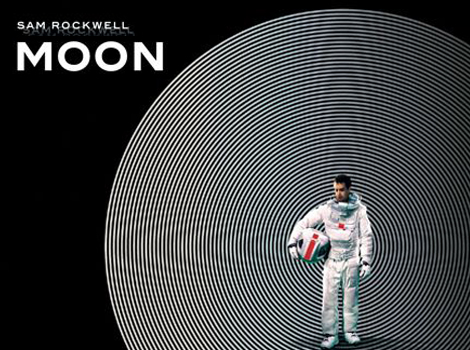There are multiple examples I could cite in order to emphasize the importance of the franchise, but in accordance with the Holiday festivities, I will cite one that has prominence as we continue through the holly-jolly month of December: the fall of Anakin Skywalker.
So what do the two have in common? Anakin Skywalker's fall in Revenge of the Sith is hardly festive. The former Jedi Knight and hero slays dozens of Jedi (including children) and eventually chokes his wife and nearly kills their unborn children before being left to die near a volcano by his former best friend and master as he falls to the Dark Side. This hardly seems like it has a redeeming ethic for Holiday festivities other than good popcorn fodder for those wishing to stroll down memory lane before seeing the new movie.
Let's backtrack a little. For all of those who haven't seen the movies and for all of those needing a refresher, let's review the fall of Anakin step by step.
So basically, Anakin Skywalker is a Jedi Knight and hero in the Clone Wars for the Galactic Republic. Early in Revenge of the Sith (the third chapter of the Star Wars franchise), Anakin and his friend Obi-Wan (also a Jedi hero) save Chancellor Palpatine from a kidnapping scheme and return him back to the capital world of Coruscant. Anakin meets with his secret wife Padme (Jedi are forbidden to marry) and learns she is pregnant. Immediately after, Anakin has a vision in which his wife dies in childbirth. Unable to let this go and unable to tell his Jedi friends, Anakin plays straight into the hands of Palpatine, who is secretly an evil Sith Lord bent on using Anakin in his galaxy-wide power play. Palpatine convinces Anakin the Dark Side is strong enough to save her and after a vicious confrontation between Palpatine and the Jedi, Anakin turns to the Dark Side in order to gain the power to save his wife. He slaughters dozens of Jedi and does Palpatine's bidding, only to strangle his wife in anger after she expresses horror over the man he's become. He becomes in Obi-Wan's words "the very thing he swore to destroy". The rest is common knowledge. He becomes Darth Vader, the man in the suit, after being deformed in a lightsaber duel with Obi-Wan.
But what exactly is Anakin's flaw? He does all of this for his wife, the only person he loves with all his heart. Is saving Padme such a bad thing? Any normal person would understand Anakin's frustrations. He can't tell the Jedi or he'll be expelled from the Order. Padme can't go to anyone else because if the relationship were to go public, their lives would be ruined. Is Lucas making a point about forbidden romance? Doubtful. The restrictions of the Jedi are draconian, probably even in the eyes of Lucas himself. A message about how love clouds our vision? I doubt that's a message Lucas wants to send to young viewers.
I think the answer to that question lies in the nature of Anakin's love itself. Throughout the film, Anakin speaks many times about wanting to save his wife, but we must take notice of the way he phrases it each time he talks about it. When Anakin first tells Padme about the vision, he says "I won't let this one become real" and in an ensuing scene yells in response to Padme promising she won't die in childbirth "No, I promise you!". Keeping in mind that Anakin also foresaw the death of his mother through a similar vision in the previous episode, it is understandable he is so concerned. However, every time he speaks of Padme, he never mentions any concern for her. Almost always, it seems like it is HIM that is the one that will be the most hurt by her dying. This is confirmed when Anakin finally collapses at Palpatine's knees after betraying the Jedi and wails "I can't live without her!".
The point is, while Anakin I'm sure deeply loves Padme, he loves her incorrectly. Anakin is a practitioner of selfish love. Padme becomes more an object than an actual person. Anakin doesn't just want to save her because she's a human being he loves, but rather he wants to save her out of his own selfish desire to keep her from leaving him.
But why is this such a bad thing? This is where we come to the rub. Anakin has deified Padme in such a way that losing her means losing the only thing that keeps him going. Anakin has put his faith not in the things a Jedi should, but in temporary things. Even though deifying his beautiful wife does not sound like a crime, it is related to a deeper problem. The more we deify the imperfect things of life, the more we suffer when they cannot live up to our expectations. Ultimately, deifying the imperfect means that we don't love them for who they are: human beings.
There are two things Anakin has done wrong that are important to take note of. He loves her in a way in which she cannot fulfill (as a God) and he has loved her in a way that serves him more than her. There are two types of love in the world: the love we give to God which is true deification and complete trust in perfection and the love we give to others which is unconditional despite the numerous flaws and imperfections that both they and the world present to us. Anakin subscribes to the former and ultimately ends up in a well of suffering for it.
This is the important message for you all this Holiday season. Love God with the trust and faith that we would give to anything that is perfect. Love one another with the expectation of mistakes being made, but always with the open heart to forgive them. Don't confuse the two! If we love God as we love one another, we cannot fully comprehend His greatness and we lose our faith in Him. If we love others as we love God, we ultimately will end up both causing and being caused suffering when they cannot give us the kind of gratification we expect. This goes further than just relationships too! We must acknowledge imperfection when we address material things, money, work, etc. If we deify these things, we end up being vessels of hate and anger from the suffering that we endure when these things cannot live up to the expectation only trust in The Lord can satisfy (or in Anakin's case, The Force).
So this Holiday season, we must love God with the deified love He deserves and love others with the forgiving kind of love that human beings deserve. Let us not just watch Star Wars as entertainment but take very real lessons from it. Anakin's failures serve not to condemn love, but to show us how to love properly. We all suffer from his very real problem. We all put too much faith on the worldly things and we all suffer because of it. From his fictional failures though, I feel we can learn many valuable lessons. And oh yes, may The Force be with you!!!!!




